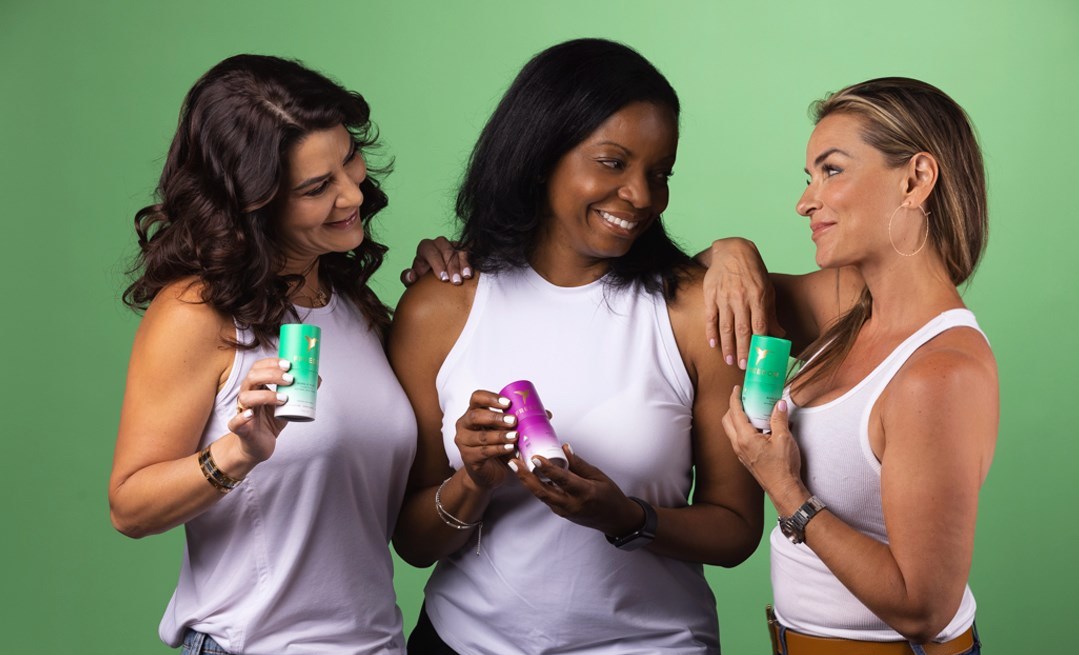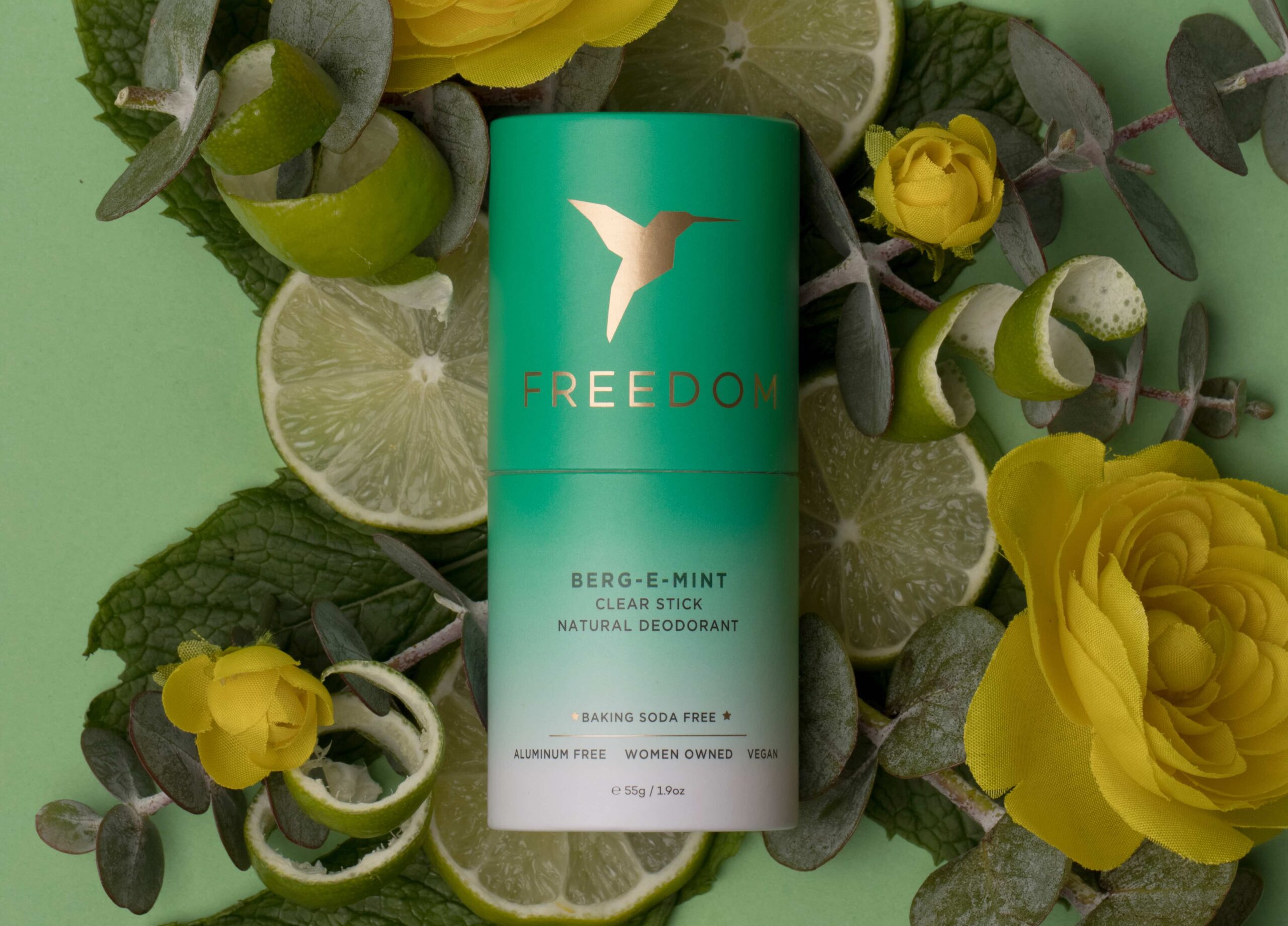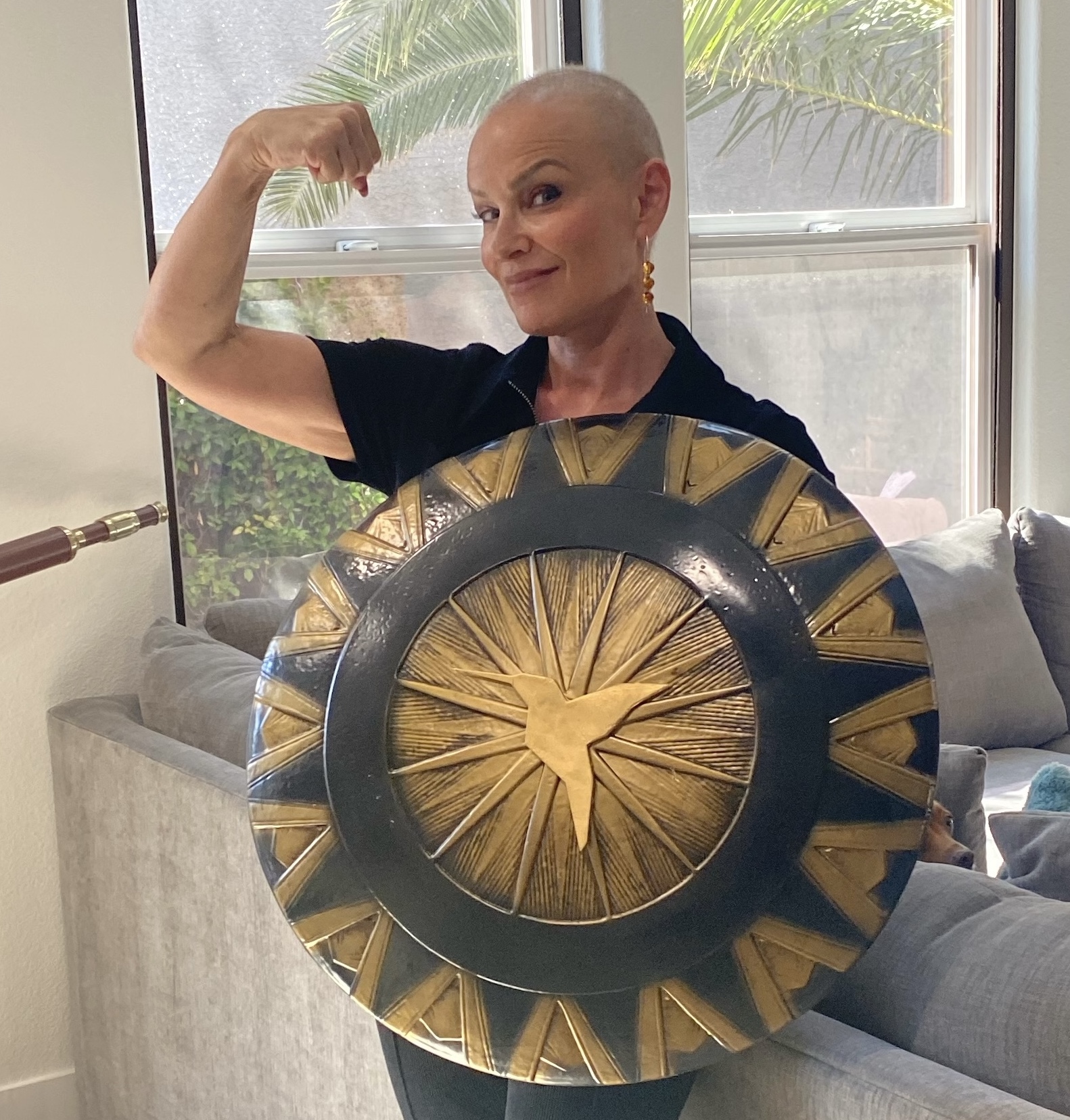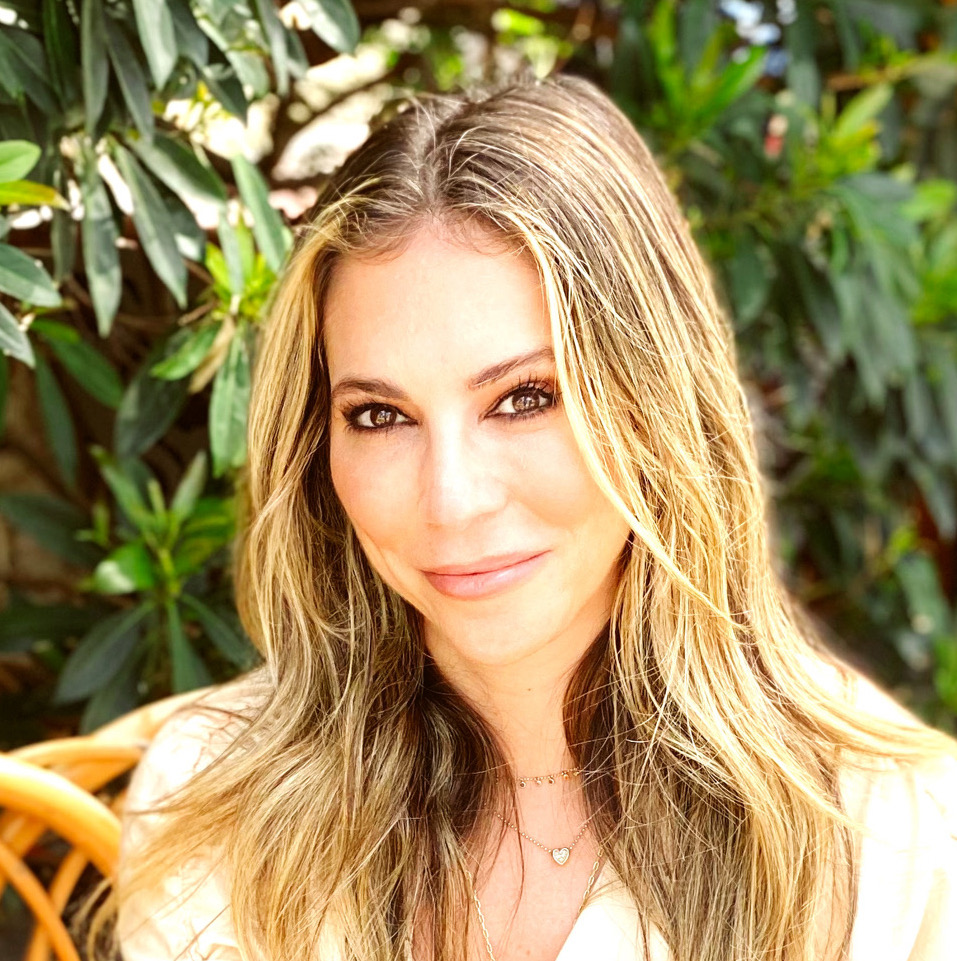
How Opening Up About Her Breast Cancer Experiences Helped Ira Kaganovsky Green, Her Deodorant Brand Freedom And Other Women
After three of her friends were diagnosed with breast cancer at a young age and instructed by their doctors to use natural products on their bodies, Ira Kaganovsky Green launched Freedom, a natural aluminum-free deodorant line, in 2015. This past April, at the age of 48, Kaganovsky Green received the same diagnosis herself, bringing the Freedom story full circle.
“It was a really tough time for me, and I had a lot of big decisions ahead,” she remembers. “We had just finished raising a small amount of capital, and five days later, I found out I had breast cancer.”
Although Kaganovsky Green wasn’t sure how to proceed, she kept returning to the purpose behind Freedom and its deep ties to breast cancer. She decided sharing her experiences was an obvious progression for Freedom and important for her road to wellness. Kaganovsky Green says, “All I kept thinking was I built this brand to get women healthier one armpit at a time, and how amazing would it be to get that conversation going and show everything.
Kaganovsky Green’s openness and rawness regarding her diagnosis and cancer journey—even removing her wig on Instagram to show her chemotherapy-related hair loss—has become a substantial part of the brand’s messaging and social media content. She talks about her breast cancer battle extensively and enlists experts such as dietician Rachel Beller, radiation oncologist Brian Lawenda and clinical psychologist Christina Hibbert to provide information via Freedom’s Instagram account.
“I intentionally chose to share my story on the brand front because having these conversations with women about being healthy sometimes comes with a dark side, and that’s what I’m going through,” says Kaganovsky Green, adding, “When women see other women surviving and thriving, I think it helps them. What do you fight for when you don’t see that? If you’re having a bad day and see somebody bald and kicking ass, it makes you stop and ask yourself, ‘What am I complaining about?’ This gives women hope and strength and doesn’t make them feel alone in this situation.”
The honest and personal breast cancer content has led to increased social media engagement for Freedom and enabled the brand to consider partnerships with larger accounts. “There was a Facebook video I did that had 300 comments, which was unbelievable and helped spark business,” says Kaganovsky Green. About possible partnerships, she says, “Those conversations are happening a lot more now than ever before, and we are seeing the business grow.”

Concerns about aluminum in antiperspirants are connected to discoveries of aluminum in breast tissue. However, medical professionals and organizations, including the American Cancer Society, predominantly hold that antiperspirants with aluminum are safe. Kaganovsky Green states that wearing natural deodorant her whole life probably wouldn’t have prevented her breast cancer diagnosis. Instead, she believes proper time management practices, stress relief and knowledge could have made a difference in her life.
“I’ve met many women who are either business owners or have high-impact, high-stress careers diagnosed with breast cancer early,” says Kaganovsky Green. “The expectations we have for ourselves and the stress women are under are ludicrous. I have daughters, and a lot of what Freedom does is for the next generation. So, we need to have these conversations now because I don’t want young girls to have to go through this.”
The arduous fundraising process—Freedom secured $500,000—was especially stressful for Kaganovsky Green. She’s convinced it had something to do with her diagnosis and even penned an op-ed piece about it entitled, “Did My Startup Give Me Cancer?” She says, “Raising that money was one of the hardest things I’ve ever done. As a woman, I found that the female investors were some of the harder investors. They say they want to invest in women-owned companies, but they make it next to impossible to do so, and I had a difficult time with that.”
“When women see other women surviving and thriving, I think it helps them.”
Following her diagnosis, Kaganovsky Green was confident working while fighting breast cancer wouldn’t be a problem. “I thought, ‘I’m going to be OK.’ I thought I would continue to be part of everything with Freedom like I had been,” she says. But the cancer treatments were mentally and physically debilitating. That’s when Kaganovsky Green says Freedom’s COO and her righthand man leveraged her condition to his advantage. She reports, “He told me he had my back and tried to take things off my plate, but he used my sickness as an opportunity to try to take over the business.” Kaganovsky Green ultimately fired him. Her radiation treatments ended in September.
Freedom’s sales mix has been shifting. Direct-to-consumer sales have dipped from 40% to 20% of its total. Retail accounts for 80% of sales. Freedom is carried by 400-plus spas, including at Marriot and Ritz Carlton properties, in retailers like Whole Foods and Thrive Market, and on QVC’s website. The brand is in negotiations with retailers to expand its distribution network. Kaganovsky Green says, “We’re going to have to hit a major retailer. It’s a volume play for us.” The road to profitability for Freedom centers around cultivating a partnership with a major retailer.
The brand’s capital infusion is allowing the brand to pump money into areas of the business where it didn’t have much budget to previously like marketing. Freedom declines to specify revenues. “If I had done things differently initially, I would have spent more money on marketing and less on product. Instead, we spent a lot to get the products just right,” says Kaganovsky Green. “The thinking was, if we put out a great product, it will sell itself, but that’s not how the beauty industry works.”

Now, marketing is at the fore with a strategic social media push across various platforms, aligned campaigns and greater visibility. In addition, Kaganovsky Green hired a new COO and is only bringing women into the company, although she has male advisors. “We are a brand made by women for women, and we are hiring differently now,” she says. “I think it’s imperative to showcase that because you don’t see enough of that.”
“We are also using the money to fine-tune our branding and hone our messaging. We’re a company of women that cares about women’s health and beautiful, everyday wellness products that are luxurious and good for them,” says Kaganovsky Green, encouraging women to get annual mammograms and ultrasounds. “Women should never have to compromise or worry about what is in our products. Making natural normal is our goal.”
Despite more money to pour into its efforts, Freedom isn’t immune to heightened cost of goods. Kaganovsky Green figures they shot up 200% in the wake of the coronavirus. Freedom hasn’t passed along the elevated costs to customers in the form of price hikes. Kaganovsky Green points out Freedom’s relatively pricy products—its stick deodorant is $12.99 on its website—give it wiggle room.
“We love that Freedom is a team effort to get women healthy and stronger.”
“I must say the pandemic was incredible for us,” shares Kaganovsky Green. “We were already making wipes, and we started making sanitizing wipes because they’re so similar. Those products led to Alaska Airlines giving out our sanitizing wipes on their flights. We also did work with Southwest Airlines. All this opened doors for us, which has been amazing.”
On the manufacturing side, Kaganovsky Green has run into a few production snafus over the last few years. “At the beginning of 2020, we paid $75,000 for a deodorant run. The vendor produced only 6,000 units from that order for the year, about 10% of what the run was supposed to be. They didn’t give us our money back,” recounts Kaganovsky Green. “It’s crazy, but that’s what is happening all over the place.”
With payment terms and minimum order quantity requirements fluctuating, one of Freedom’s manufacturers bumped up its MOQs from 5,000 units to 12,000 and doubled the price. “The extra funding has been a nice cushion,” says Kaganovsky Green.

Then, there are reformulating costs. Freedom’s deodorant formulations were reworked about 15 times after they began showing up elsewhere in the market. “Other brands were copying everything we put out,” says Kaganovsky Green. “A huge company who just sold ordered a lot of our deodorant, so we kept changing the formula to allow for better retail competition.” Eventually, Kaganovsky Green concluding reformulating again and again wasn’t worthwhile, and concentrated on marketing. She says, “In the end, the people who know and love us will stick with the brand no matter what.”
Kaganovsky Green plans to add stockkeeping units to Freedom’s product portfolio, especially more wellness-oriented products, and will be rolling out plastic-free packaging with a twist function for deodorant application. At the moment, the brand’s product offerings extend beyond deodorant to shower mists, lip balms and wipes.
Freedom is laser-focused on its goal of caring for women and paying it forward. Each month a percentage of sales are donated to the American Cancer Society. Kaganovsky Green says, “We love that Freedom is a team effort to get women healthy and stronger. We will keep being that brand, especially regarding the people we work with, who we hire, and where we go at the next level.”
In 2026, she would consider selling Freedom. “It’s hard to be an indie brand right now, in my opinion, because everything is so much more expensive,” says Kaganovsky Green. “But I guess we’re not so indie anymore. We’re a little bit more grown up.”





Leave a Reply
You must be logged in to post a comment.